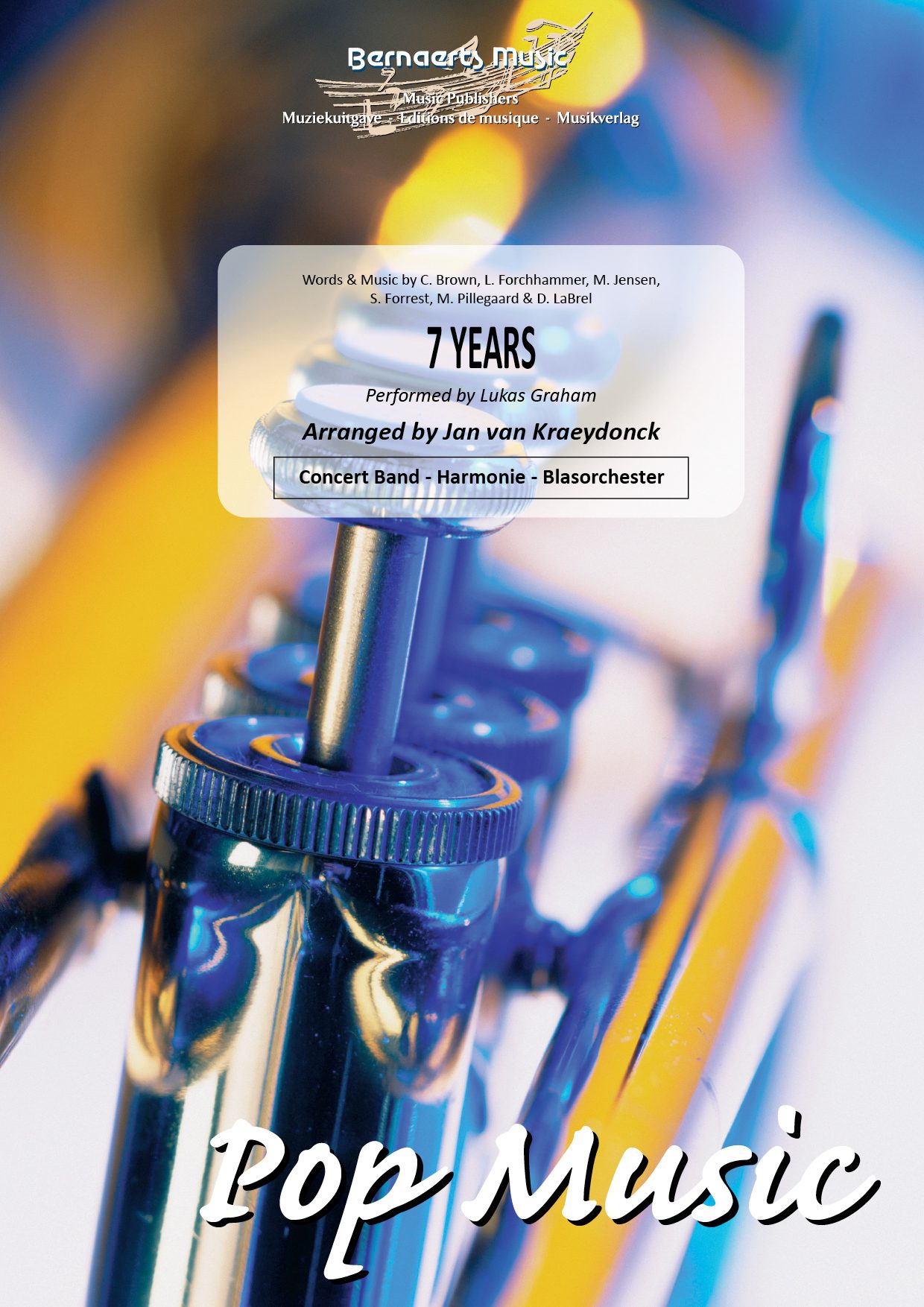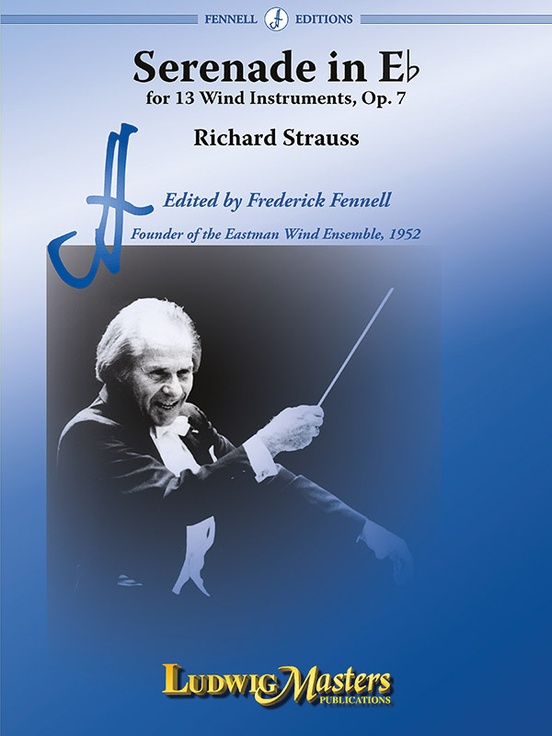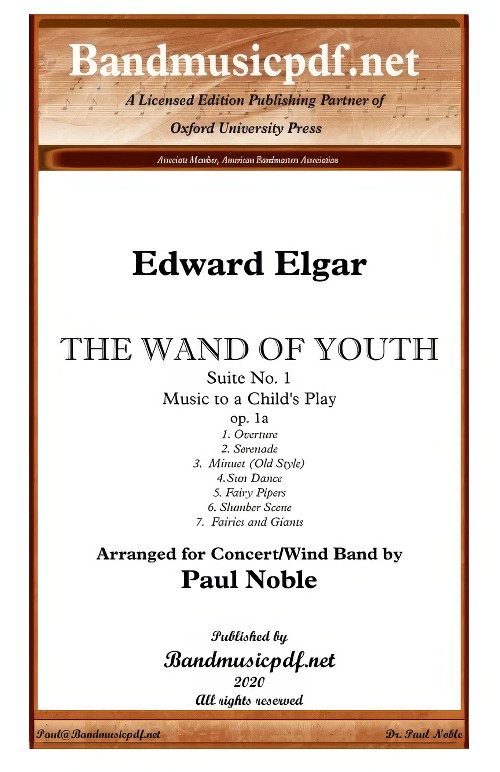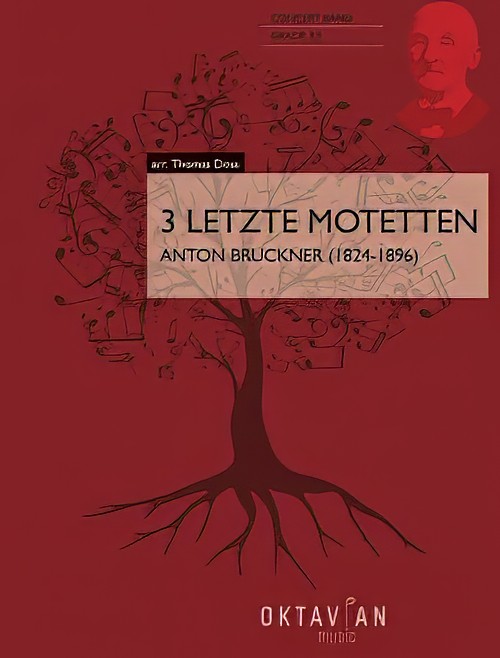Results
-
 £70.99
£70.997 Years - Christopher Brown, Lukas Forchhammer, Morten Jensen, Stefan Forrest, Morten Pillegaard & David LaBrel - Jan van Kraeydonck
Estimated dispatch 10-14 working days
-
£71.80
7 Years - Lukas Graham
Estimated dispatch 7-14 working days
-
 £39.95
£39.95Music for Junior Wind Band - Vol. 7 - Adrian Taylor
The arrangements and compositions in these books were written by Adrian Taylor for various beginner or school bands that he has conducted over the years. Children joined these bands on the 2nd parts, usually having only been playing for a year and they then progressed to the 1st parts the following year.The 2nd parts are written without key signatures in treble clef, in B flat major for bass clef trombone and euphonium and in E flat major for bass clef tuba. 1st parts are written with the appropriate key signatures for each piece, reflecting the greater understanding and skills of the players on these parts. Most of the pieces can be played with only a few parts being covered, the addition of the other parts usually enhancing the arrangement rather than simply doubling existing musical lines. The essential parts are the two Trumpet (and Clarinet or Cornet) parts, the two Trombone/Euphonium parts and preferably also the 1st Horn part. A piano part helps to fill out the harmonies where other parts are missing. The brass parts in the wind band versions are identical to those in the brass versions.
Estimated dispatch 7-14 working days
-
 £104.50
£104.50Pleasant Years - Don Gillis
This beautiful pastorale is the second movement of Gillis Symphony No.1. (7 minutes)
Estimated dispatch 7-14 working days
-
 £50.50
£50.50Serenade, Op. 7 in Eb - Richard Strauss / arr. Frederick Fennell
Written in 1881, this Serenade in E-flat for 13 wind instruments was written by Richard Strauss when he was only 17 years old. His father, the principal horn player with Munich's court orchestra, had a select list of older composers that he preferred, including Mozart and Mendelssohn, and his father's influence can be seen in his son's work, both in the inclusion of a larger horn section and the use of his father's more conservative musical preferences. The work is much more than simply a capable imitation of Mozart and Mendelssohn, though. It represents Strauss' filtering and distillation of these influences into something remarkably original and identifies the young man's future as one of the great composers. This edition by famed band master Frederick Fennell addresses balance issues and supplies the director with some additional instrumentation options. Instrumentation: 2.2.2+CBCl(opt).2+CBsn: 4.0.0.0: CtrBs(opt).
Estimated dispatch 3-5 working days
-
 £225.00
£225.00The Wand of Youth, Suite No.1 (Complete) (Concert Band - Score and Parts) - Elgar, Edward - Noble, Paul
The Wand of Youth suites, subtitled Music to a Child's Play, were written in 1869 when Elgar was only twelve years old, music written for a play and acted by the Elgar children for a private family theatrical production. He noted the tunes down in a sketchbook and in 1907, forty years later, he rearranged with only minor changes and orchestrated them as the two suites titled The Wand of Youth, Suite Nos. 1 and 2. Although The Wand of Youth suites date from Elgar's mature years, he insisted on calling it Opus 1, because he wrote these pieces originally for piano many years earlier. Suite No.1 includes seven movements: 1. Overture; 2. Serenade; 3. Minuet (Old Style); 4. Sun Dance; 5. Fairy Pipers; 6. Slumber Scene; and 7. Fairies and Giants.
Estimated dispatch 7-14 working days
-
 £118.99
£118.99Cats - Andrew Lloyd Webber
The Musical CATS, with music by Andrew Lloyd Webber is based on the 1939 poetry collection Old Possum's Book of Practical Cats by T. S. Eliot. It became Lloyd Webber's third great success, after the musicals Jesus Christ Superstar and Evita. He began setting Eliot's poems to music in 1977, and the compositions were first presented as a song cycle in 1980. Producer Cameron Mackintosh then recruited director Trevor Nunn and choreographer Gillian Lynne to turn the songs into a complete musical. CATS became one of the longest-running shows in West End and Broadway history. It received its world premiere at the New London Theatre in 1981, where it played for 21 record-breaking years and almost 9,000 performances. The following year, CATS opened at New York's Winter Garden Theatre, its home for the next 18 years, garnering seven 1983 Tony Awards, including Best Musical. The show returned to Broadway in 2016, where it had a successful pre-tour run at the Neil Simon Theatre. CATS has been presented in over 30 countries, translated into 16 languages, and seen by more than 73 million people worldwide. Lloyd Webber's magnificent musical score includes the poignant hit song Memory, which has been recorded by over 150 artists, from Barbra Streisand to Liberace to Barry Manilow. It took 7,486 chandelier crashes for Lloyd Webber's The Phantom of the Opera to take over from CATS as the longest-running show in Broadway history in January 2006.
Estimated dispatch 7-14 working days
-
 £123.20
£123.203 Letzte Motetten - Anton Bruckner
Anton Bruckner (b. 4.9.1824, Ansfelden, d. 11.10.1896, Vienna) didn't have it easy. Throughout his life, the Austrian composer was plagued by self-doubt. Anton Bruckner came from a simple, rural background. After the death of his father, he was accepted as a choirboy at the monastery of Sankt Florian in 1837. After several years as a school assistant and his own organ and piano studies, he first worked as organist in St. Florian, then from 1855 as cathedral organist in Linz. Introduced to music theory and instrumentation by Simon Sechter and Otto Kitzler, he discovered Richard Wagner as an artistic role model, whom he admired throughout his life and also visited several times in Bayreuth.In 1868 Anton Bruckner became professor of basso continuo, counterpoint and organ at the Vienna Conservatory; ten years later court organist; and in 1891 finally honorary doctor of the University of Vienna. He was considered an important organ virtuoso of his era, but had to wait a long time for recognition as a composer. It was not until Symphony No.7 in E major, composed between 1881 and 1883, with the famous Adagio written under the effects of Wagner's death, that he achieved the recognition he had hoped for, even if he was reluctant to accept it given his inclination towards scepticism and self-criticism.Anton Bruckner was a loner who did not want to follow a particular school or doctrine. He composed numerous sacred vocal works, such as his three masses, the Missa Solemnis in B flat minor (1854), the Te Deum (1881-84) and numerous motets. As a symphonic composer, he wrote a total of nine symphonies and many symphonic studies from 1863 onwards, tending to revise completed versions several times over. Bruckner's orchestral works were long considered unplayable, but in fact were merely exceptionally bold for the tonal language of their time, uniting traditions from Beethoven through Wagner to folk music, on the threshold between late Romanticism and Modernism.Anton Bruckner composed about 40 motets during his lifetime, the earliest a setting of Pange lingua around 1835, and the last, Vexilla regis, in 1892.Thomas Doss has compiled some of these motets in this volume for symphonic wind orchestra.These motets show many characteristics of personal expression, especially Bruckner's colourful harmony in the earlier works, which is in places aligned with Franz Schubert (changes between major and minor; and movements in thirds). Later works are characterised by many components which, in addition to the expanded stature of the movements, include above all a sense of the instrumentation as an outward phenomenon and the harmony as a compositional feature that works more internally. Some aspects of Bruckner's work are the result of his long period of study, which familiarised him not only with the tradition of his craft, but also gave him insights into the "modernity" of his time in such composers as Wagner, Liszt and Berlioz.From this developed his personal standpoint, which always pursues the connection between the old and the new.
Estimated dispatch 7-14 working days
-
 £118.99
£118.99Cats (Songs from the musical) (Concert Band - Score and Parts) - Lloyd Webber, Andrew - De Meij, Johan
The musical Cats, with music by Andrew Lloyd Webber is based on the 1939 poetry collection Old Possum's Book of Practical Cats by T.S. Eliot. It became Lloyd Webber's third great success, after the musicals Jesus Christ Superstar and Evita. He began setting Eliot's poems to music in 1977, and the compositions were first presented as a song cycle in 1980. Producer Cameron Mackintosh then recruited director Trevor Nunn and choreographer Gillian Lynne to turn the songs into a complete musical. Cats became one of the longest-running shows in West End and Broadway history. It received its world premiere at the New London Theatre in 1981, where it played for 21 record-breaking years and almost 9,000 performances. The following year, Cats opened at New York's Winter Garden Theatre, its home for the next 18 years, garnering seven 1983 Tony Awards, including Best Musical. The show returned to Broadway in 2016, where it had a successful pre-tour run at the Neil Simon Theatre. Cats has been presented in over 30 countries, translated into 16 languages, and seen by more than 73 million people worldwide. Lloyd Webber's magnificent musical score includes the poignant hit song Memory, which has been recorded by over 150 artists, from Barbra Streisand to Liberace to Barry Manilow. It took 7,486 chandelier crashes for Lloyd Webber's The Phantom of the Opera to take over from Cats as the longest-running show in Broadway history in January 2006.Duration: 8.15
Estimated dispatch 7-14 working days
-
 £123.20
£123.203 Letzte Motetten (Concert Band - Score and Parts) - Bruckner, Anton - Doss, Thomas
Anton Bruckner (b. 4.9.1824, Ansfelden, d. 11.10.1896, Vienna) didn't have it easy. Throughout his life, the Austrian composer was plagued by self-doubt. Anton Bruckner came from a simple, rural background. After the death of his father, he was accepted as a choirboy at the monastery of Sankt Florian in 1837. After several years as a school assistant and his own organ and piano studies, he first worked as organist in St. Florian, then from 1855 as cathedral organist in Linz. Introduced to music theory and instrumentation by Simon Sechter and Otto Kitzler, he discovered Richard Wagner as an artistic role model, whom he admired throughout his life and also visited several times in Bayreuth. In 1868 Anton Bruckner became professor of basso continuo, counterpoint and organ at the Vienna Conservatory; ten years later court organist; and in 1891 finally honorary doctor of the University of Vienna. He was considered an important organ virtuoso of his era, but had to wait a long time for recognition as a composer. It was not until Symphony No.7 in E major, composed between 1881 and 1883, with the famous Adagio written under the effects of Wagner's death, that he achieved the recognition he had hoped for, even if he was reluctant to accept it given his inclination towards scepticism and self-criticism. Anton Bruckner was a loner who did not want to follow a particular school or doctrine. He composed numerous sacred vocal works, such as his three masses, the Missa Solemnis in B flat minor (1854), the Te Deum (1881-84) and numerous motets. As a symphonic composer, he wrote a total of nine symphonies and many symphonic studies from 1863 onwards, tending to revise completed versions several times over. Bruckner's orchestral works were long considered unplayable, but in fact were merely exceptionally bold for the tonal language of their time, uniting traditions from Beethoven through Wagner to folk music, on the threshold between late Romanticism and Modernism. Anton Bruckner composed about 40 motets during his lifetime, the earliest a setting of Pange lingua around 1835, and the last, Vexilla regis, in 1892. Thomas Doss has compiled some of these motets in this volume for symphonic wind orchestra. These motets show many characteristics of personal expression, especially Bruckner's colourful harmony in the earlier works, which is in places aligned with Franz Schubert (changes between major and minor; and movements in thirds). Later works are characterised by many components which, in addition to the expanded stature of the movements, include above all a sense of the instrumentation as an outward phenomenon and the harmony as a compositional feature that works more internally. Some aspects of Bruckner's work are the result of his long period of study, which familiarised him not only with the tradition of his craft, but also gave him insights into the "modernity" of his time in such composers as Wagner, Liszt and Berlioz. From this developed his personal standpoint, which always pursues the connection between the old and the new.Duration: 14.00
Estimated dispatch 7-14 working days
